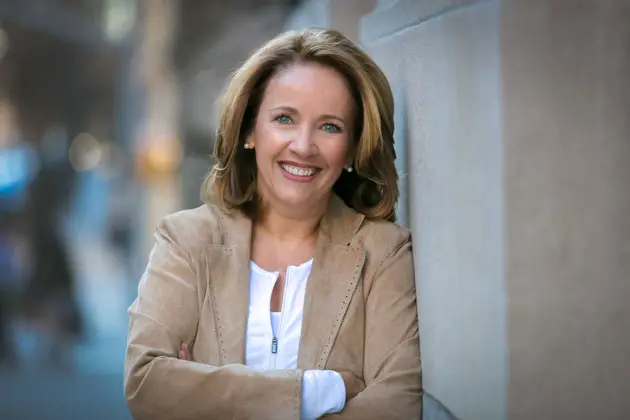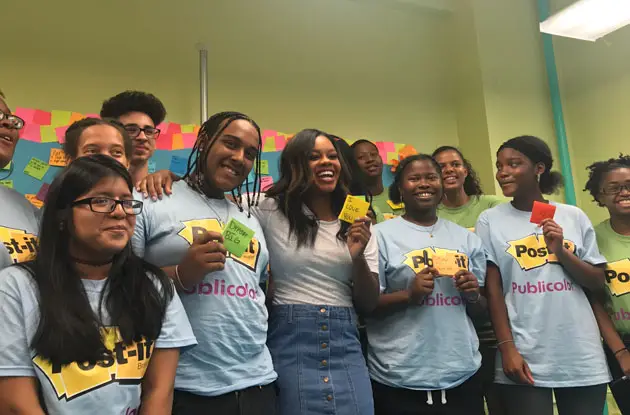In an interview with the authors of Still Here Thinking of You: A Second Chance with Our Mothers, four women explore their relationships with their mothers, their relationships with their own children, and the lessons they learned.

A memoir is not a factual recitation of history, though history is part of the story. It’s a recollection, a musing and merging of images, dreams, reflections of moments in your life’s journey,” says Linda Joy Myers, Ph.D., author of The Power of Memoir: How to Write Your Healing Story. In the collective memoir Still Here Thinking of You: A Second Chance with Our Mothers (Big Table Publishing; $15), four local writers explore their memories of their mothers—and in a group interview just prior to the book’s March release, it is clear that the act of putting pen to paper helped them remember details. Perhaps more importantly, it also helped the authors come to terms with the relationships they have had with their parents.
The perspective afforded by time, the contrast derived from filtering memories through a new lens (each woman is a parent herself now), and the community of sharing their perceptions during regular memoir-focused get-togethers, has resulted in a series of introspective and revealing vignettes that readers will find both familiar and fresh. Each author—Vicki Addesso, Susan Hodara, Joan Potter, Lori Toppel—shares unique experiences, but they all converge to reveal something of the universal about parenthood.
Of Intentions and Secrets
Susan, you describe moments when your mother was silent at a time you were craving a response. Did you come to understand that your mom’s silences meant something different to her than they did to you?
Susan: My mother and I have talked about her silences, and I know she regrets a period of passiveness as a mother…. When I was younger I felt her silences as neglect or passivity, but now I see them differently. I see now that her evenness, her lack of judgment, and her acceptance of some of the more demanding emotions I laid on her, gave me a sense of self and the freedom to develop a self-sufficiency that I might not have developed so soon, had she been more nurturing. In fact, I hope my own daughters have a similarly strong sense of self despite my very deliberate attention to them.
Did any of you have similar moments—realizing that something your mother did which hurt you was really the result of good intentions you couldn’t understand at the time?
Vicki: When I think back on some of the incidents I wrote about in the book, one of the ones that comes back to me is the slap in the face [in the story “Outside of Her”]. It’s after I was in the hospital and I came home and I threw up on the floor again. At the time I thought she was just angry with me, and I thought she was being mean—but at some point as I was growing up…I realized she did it for other reasons. First, I do believe she was just simply exhausted and frustrated after my illness, but I believe she also did it to shock me out of my fear. She knew I was nervous about eating, about going back to school, and about having to be away from her after all the time we spent together, her caring for me. I’m not saying I agree with slapping children in the face—what I’m saying is that I understand my mother’s intentions, and that has made the memory of that moment soften. I don’t see it as so mean, any longer.
Lori: When I think about my teenage years with my mother, she was extremely angry and her rage against my father was a big presence in our house. Now, I realize that she was protecting us from trusting him completely, as she didn’t trust him. She was very frightened he wouldn’t act in our best interest. In fact, she must’ve harbored so much pain over losing him—and felt that he was personally attacking her in the divorce courts—that she redirected her anger at us. Maybe thinking in some way that that would be a shield so we would not see her despair and her fear. Now that I know, as an adult, how difficult and painful divorces can be (and theirs was eight years long), I wonder if there might have been a way to sympathize with her fears and frustrations, with the lawyers and all the money spent. If she had expressed herself with sadness, maybe my sister and I would have moved towards her, rather than against her.
Susan, you write of your mother: “She was not only protecting my father, she was shielding her children. Only now do I recognize how alone that left her.” Was the revelation that your mother shouldered a great weight to protect you a new one during your writing?
Susan: I didn’t take the time to consider this idea until I started writing about my mother. Fleshing out the circumstances and the consequences brought the weight my mother shouldered into focus. In fact, I remember writing that sentence that you quote, and that realization came hand in hand with finding those words. That was happening at the same time that my mother was caring for my father, who was declining into Alzheimer’s. In this role, her strength of character became more evident and I saw the burden that it had been for her to stand between her husband and her children.
Were there similar things that were complete revelations to each of you as you were writing about your mother?
Joan: Growing up, there were many secrets in my mother’s life that she sometimes alluded to but never explained. I was able to uncover many of them [when, after my mother died,] I listened to a tape she’d made. I knew her father had died when she was young and had heard rumors that he had killed himself, but I didn’t know the whole story until I heard the tape. I also didn’t know that my father had run off with another woman soon after their marriage, and that she’d taken him back. So many of these secrets that had been lingering beneath the surface, that I had suspected, came to light as I worked on the memoir.
Vicki: As we were sharing our stories in the writing group, it became a gateway to the revelation that a good and loving mother can come with many and varied blemishes. I’d always felt that a family only reveals the perfect aspects about their members and hides the faults. In my home there were many secrets, things that were simply ignored or never spoken about. Those were the things that I assumed never happened in other families. It gave me a sense that somehow my family was defective but, as Joan, Susan, Lori, and I wrote about our relationships with our mothers, and by extension the dynamics of each of our families, I realized how that secretiveness existed in all families. And I saw how isolating and harmful it could be. For me to be able to tell the story of my mother and myself, for it to be valid and real, it had to be open and true. I learned to let go of shame and see the bigger picture of why some things were not always perfect, and to know that it was okay.
Lori: My mother told me way too much about herself. It was as if her psyche was an open book. I knew about her lovers, and as I got older I knew about her rage against my father. I knew about her disappointment in me, about her disappointment in others. What I didn’t know was the way in which she viewed herself in such a negative light. After writing the memoir I realize now that she had so much fear about facing a part of herself.
Do you approach parenthood differently with your own children?
Susan: Yes, I do. Despite realizing that I developed a strong sense of self by being left on my own as a result of my mother’s passivity, I also recognized the lack of closeness that resulted. I was determined to try to respect and recognize my daughters’ emotions and to express my own feelings to them, to represent myself as a feeling person with opinions and values that matter to me.
Joan: My mother raised us in a small town…. She didn’t have many outlets. I lived, and still live, in a very diverse suburb. I had a job, I was very involved with many activities, and my children very often participated with me in the activities I was involved with. I didn’t really make a deliberate attempt to be different from my mother but my situation was very different and that affected my children, I’m sure.
Vicki: I take a lot from my mother’s approach to parenting and use it as a guidepost…. I’ve realized now how extremely emotionally multi-dimensional the relationship between a mother and child can be. Our children are individuals, they are unique, they are ever-changing as they mature, and so are we as parents and as adults. We are always changing—it’s a learn-as-you-go experience, parenting and being a mother.
Lori: I would say that when I was a little girl, my mother’s style of mothering was not that different from my own with my sons. She was very tender, she was very attentive, she was a presence, she was funny. She was extremely loving. It was later that she transformed and became bitter…. She rarely asked me how I was feeling or my opinion on anything, even when I was in my teens, 20s, 30s. Whereas with my children—I have twin boys who are 19—I respect their opinion. I ask them what they are feeling. I hope to explain how I may be feeling. At times, I might even tell them more than I need to, but I tell them because I feel it’s fair and I value their judgment and intelligence.
Remembrance
How do you want your own children to remember you?
Susan: I actually never thought about this until you asked this question. They’ll probably remember me as a nag, and a bunch of things I don’t want, but the way I’d like them to remember me? As sensitive and nurturing and as offering a place of unconditional love and comfort, and also as a competent and accomplished woman.
Vicki: I hope my boys remember that I can be joyful, hopeful, honest, fun, and caring. But how they remember and how I want them to remember me are two different things. I hope they have some nice stories to tell their children one day. Most of all, I want them to remember me as perfectly imperfect. A good mom, flaws and all—I mean the stuff they couldn’t stand about me was outweighed by the stuff they liked about me.
Lori: I can only say I hope when they remember me, they are able to reflect on my strengths, my flaws, my foolishness, my insights and feel that yes, there was a lot of love there. And if they happen to be sharing a story or a memory with someone, that the listener too will feel that intensity of emotion.
Balancing Acts
Vicki, you wrote: “But. The house was a mess. There were piles of dirty laundry on the floor, I needed to get to the grocery store, and I had so many phone calls to make. I remember thinking of my mother. As busy as she always was, she stole the time to draw and paint.” How do each of you think back on your mother’s ability to find balance—to reconcile her role as woman and mother?
Vicki: When we were very young, my mother didn’t work outside of the house but she was still always busy…. [Then] at one point she was working three jobs, one full-time and two part-time. But still, all the housework was her responsibility. I remember she was always tired. I used to look at that and think, I will never let my husband get away with that. But she was strong and resilient and stubborn—she enjoyed her life. She always had hobbies, interests, and friends. She was full of energy. Whenever I begin to feel overworked (I have two part-time jobs outside the home, but my husband and I share all the household responsibilities), when I feel like life is all work and no play, I remind myself how much more difficult it was for my mother. I scold myself for being a whiner, and then I get on with it and remember to make some time for fun like she did.
Lori: My mother never worked. She didn’t have to, I suppose, but she didn’t have any desire to. Outside of mothering and decorating her home and that kind of thing, she didn’t understand, I believe, that a balance could be found within herself. She lost her way during and after the divorce and allowed that confusion to consume her. I’ve always had writing in my life and in fact…if anything, I had to cut away at that writing life more than I imagined when I had my sons. Yet within days I found myself loving motherhood. Nonetheless, I was always grateful that I could still feel the writer stirring inside, forcing me to work whenever I could. She just never had that.
Joan: My mother was finally able to find balance in her life when she and my father moved to California. At that point, her children were all on their own but she did still have to take care of my father, who was 13 years older, not in good health, and didn’t know how to do anything around the house, even make his own sandwich for lunch. I am still trying to find balance in my own life…which I assume all parents have to.
Also see:
You Are Your Child’s Fisrt and Most Important Teacher
Help Your Children Build and Maintain Relationships with Their Grandparents




















